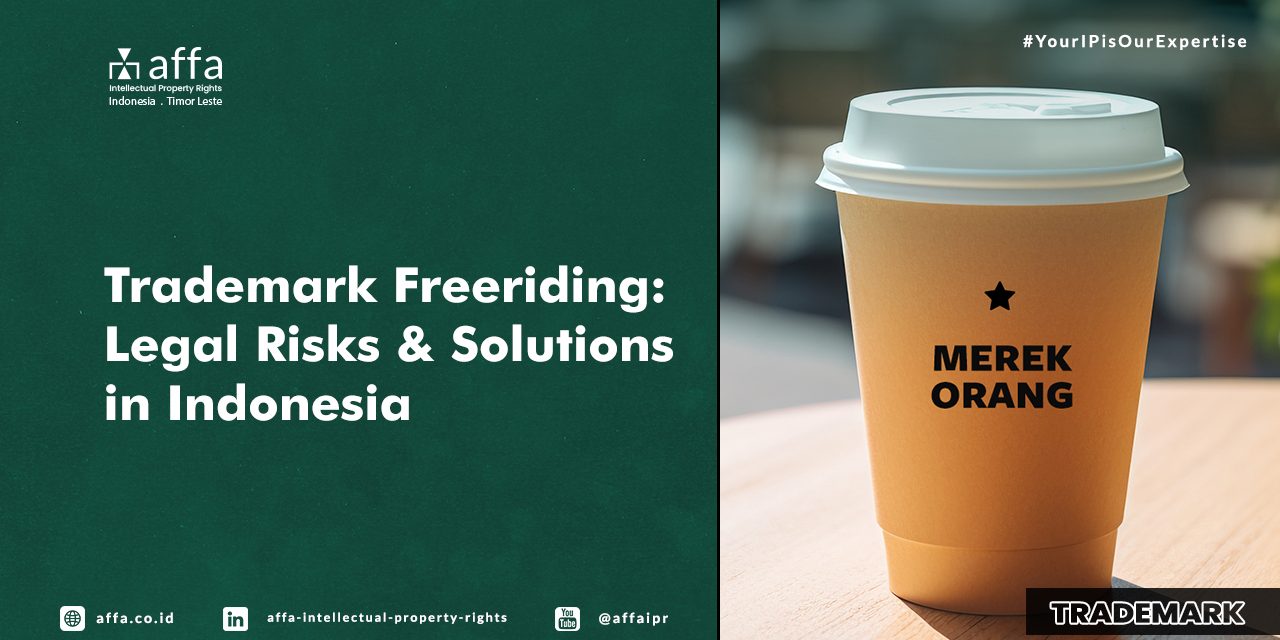According to the Indonesian Dictionary (KBBI), hitchhiking is participating (eating, riding in a vehicle, etc.) without paying. This word is used in colloquial language and is often associated with someone taking advantage of an opportunity without any contribution or cost.
Freeriding Trademarks are also often carried out to take advantage of the popularity of an existing Trademark or even a Well-known Mark to increase exposure and make it easier to sell. For example, opening a ramen shop with a logo that resembles and displays the Ultraman character, opening an amusement park called Squid Game, or opening a car rental business and naming it Gulfstream.
Is this practice justified? What are the legal consequences for the hitchhiker and the actual owner?
A Trademark is the Exclusive Right of the Trademark Holder
Exclusive Trademark Rights are rights granted to Trademark Holders who have been officially registered to use the Trademark in the trade of goods or services. These Exclusive Rights allow the holder to prohibit other parties from using the same or similar Trademark for goods and/or services in the same class without permission.
In Indonesia, Trademarks as Exclusive Rights are regulated in Article 1 of Law Number 20 of 2016 concerning Trademarks and Geographical Indications (Trademark Law), where registered Trademark Holders have Exclusive Rights for a certain period by using the Trademark themselves or granting permission to other parties to use it. Thus, Trademark Holders can prohibit other parties who, without permission, use the same Trademark on the same goods and/or services, Trademarks that are the same as their registered Trademark on the same goods and/or services, or Trademarks that are the same or basically the same as their registered trademark for similar goods and/or services.
Thus, if another party without permission utilizes the existence of a registered Trademark, it can be considered a Trademark violation.
Sanctions for Trademark Violators
For the use of a Trademark without permission, Article 100 of the Trademark Law regulates criminal sanctions of imprisonment and/or fines as follows:
- Using the same Trademark:
A maximum of 5 years in prison and/or a maximum fine of IDR 2 billion. - Using a similar Trademark:
A maximum of 4 years in prison and/or a maximum fine of IDR 2 billion.
Legal Ways to Freeriding on Registered Trademarks
Several steps can be taken to use a Registered Trademark in Indonesia legally. These steps are as follows:
- Trademark License:
The most common step is to obtain a license from the registered Trademark owner. This license is an agreement between the Trademark Owner (Licensor) and the Other Party (Licensee), which grants the Licensee the right to use the Trademark according to the agreed terms. To obtain it, you must contact the Trademark Owner and negotiate and sign a License Agreement determining the scope of use, duration, territorial coverage, and exclusivity. - Franchise Agreement:
If the registered Trademark is part of a Franchise, you can join it through the available Franchise Agreement. Through this agreement, the franchisor will grant you (the franchisee) the right to use the Trademark and its business system. Usually, a Franchise also involves transferring business knowledge, training, and operational support.You might also want to read:Similar But Not The Same – The Difference Between Franchising and Licensing in Indonesia
- Co-Own of a Trademark:
Sometimes, two or more parties may agree to use a Trademark together. This requires a detailed agreement and ensures that all parties understand their rights and obligations, including how the Trademark will be managed. If this joint use results in a change of ownership, you must submit the change to the Directorate General of Intellectual Property (DGIP) or through a reliable Trademark Consultant. - Trademark Transfer:
Another alternative is to purchase the rights to the Trademark from the current owner, the provisions of which are regulated in the Trademark Transfer. Uniquely, the Trademark can be transferred while still in the application process status, provided that the deed of transfer that the notary has legalized is recorded at the DGIP to be fully binding. The transfer must cover all classes of goods and/or services of the transferred Trademark. - File a Trademark Cancelation Action:
If you believe the previous owner has not used the Trademark you will use for 5 (five) consecutive years, then you can appoint an experienced Trademark Consultant to file a Trademark Cancelation Action with the Commercial Court. The Panel of Judges will then order DGIP to delete the Trademark you wish to use. However, you have also submitted a registration application for the Trademark you want to use.
You might also want to read:
A Win for the “WIN” – AFFA Represents Hongyunhonghe Tobacco (Group) Co. Ltd. for a Successful Trademark Non-Use Cancellation in Indonesia
Should you need more information about Trademark protection or registration in Indonesia and/or abroad, do not hesitate to contact us through email: [email protected].








1 Comment